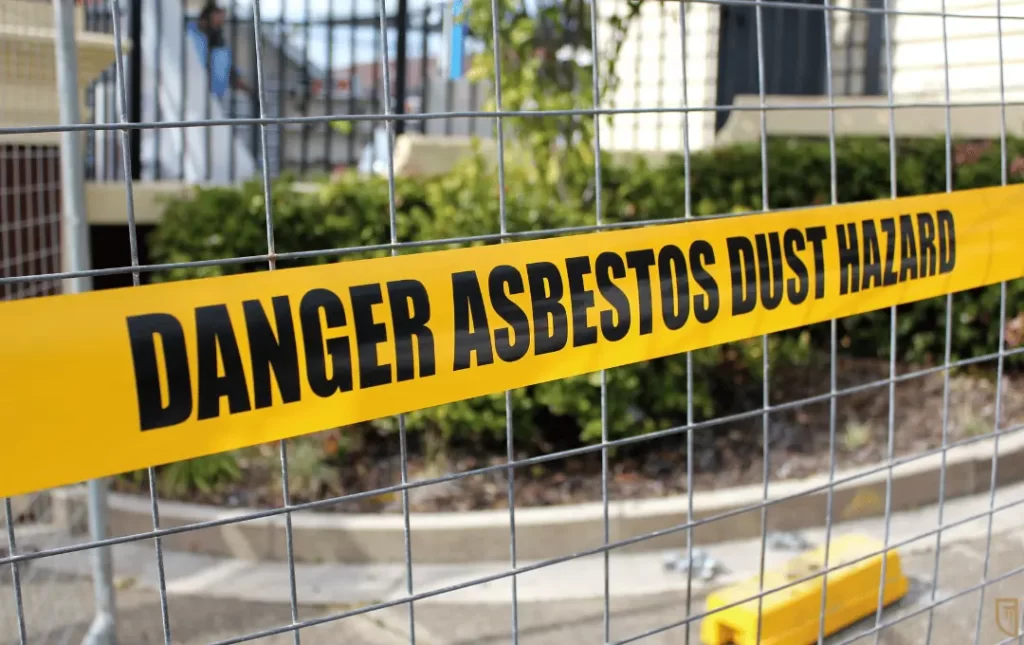Personal Injury Lawsuit
In the realm of personal injuries, whether from car accidents, workplace incidents, or medical malpractice cases, navigating the legal process can be daunting. A personal injury lawsuit offers a pathway for injured parties to seek fair compensation for medical bills, lost wages, and the physical and emotional pain endured. With the guidance of an experienced personal injury lawyer, victims can file a claim against the at-fault party, aiming for a settlement that reflects the seriousness of their injuries and the financial and emotional distress they’ve faced.

Written by: Sarah from Legal Claim Assistant,
Last updated: March 5, 2024

Camp Lejeune
Camp Lejeune lawsuit seeks justice for contaminated water exposure victims.

Firefighting Foam
AFFF lawsuit targets manufacturers for PFAS exposure, we offer legal help.

PFAS Lawsuit
PFAS class action lawsuit addresses environmental, health impacts. We seek for accountability.

Rideshare
Rideshare lawsuits target Uber, Lyft over pay, safety. You can now seek a free consultation

Mormon Lawsuit
Mormon lawsuit claims LDS Church mismanaged funds, we offer a free case review.

Asbestos
Asbestos lawsuit seeks justice for cancer or mesothelioma. Get a free case review.

Mesothelioma
Mesothelioma lawsuit seeks compensation for asbestos exposure. Get your free case review.

Roblox
Roblox lawsuit seeks compensation for victims of sexual abuse during playing Roblox.
Table of Contents
What is a personal injury lawsuit?
A personal injury lawsuit is a legal action initiated by someone who has been harmed due to another’s negligence or intentional actions. This process is designed to help the injured person receive compensation for various losses. These can include medical expenses, lost wages, and compensation for physical pain and emotional distress caused by the injury. The goal is to ensure the victim is made whole again to the extent possible through financial compensation.
Injuries can occur in numerous situations, such as car accidents, slips on unsafe surfaces, or through the use of defective products. Personal injury cases empower victims to seek financial redress from those at fault. This can involve individuals, companies, or insurance providers. The heart of these legal actions is to secure a fair settlement that covers all related costs and losses, providing relief to the injured party.
Settlement negotiations and court judgments play critical roles in determining the worth of a personal injury lawsuit. An essential aspect of this process is holding the responsible party accountable for their actions, whether through negligence or intentional harm.
Having an experienced personal injury attorney is vital. A skilled lawyer navigates the complex legal system, interacts with insurance adjusters, and aims to maximize the recovery of damages. Their expertise ensures that the injured person receives the justice and compensation they rightfully deserve.

How to file a personal injury lawsuit
To start a personal injury lawsuit, the first step is identifying if your situation involves injuries due to someone else’s negligence or intentional acts, like in car accidents or incidents involving defective products. When you decide to file a personal injury claim, gathering evidence is crucial. This includes medical records showing your injuries, police reports from the accident scene, witness statements, and any proof of damages.
Next, you should contact a reputable legal representative, especially if dealing with insurance companies or the at-fault party’s insurer. Legal Claim Assistant specializes in handling personal injury cases, providing free consultations to evaluate the worth of your personal injury lawsuit. Their experienced team guides you through the process, from submitting the initial insurance claim to pursuing a fair settlement or preparing for a court judgment if necessary.
Need help filing a Personal Injury Claim?
Filing the lawsuit involves drafting and submitting a demand letter to the at-fault party, detailing your injuries, the negligence involved, and the compensation you seek for your financial losses and physical injury. Legal Claim Assistant can help ensure your claim is filed within the legal time limit, enhancing your chances of recovering damages for economic damages and emotional distress caused by the other party’s carelessness.

How long does a personal injury lawsuit take?
The time it takes for a personal injury lawsuit to conclude can vary widely. Generally speaking, it might take anywhere from a few months to several years. The duration depends on several factors, including the complexity of the personal injury case, the severity of injuries, and how quickly parties involved can agree on compensation.
Cases with clear evidence of the other party’s carelessness, such as in car accidents or incidents involving a broken product, might resolve faster, especially if the insurance company is willing to offer a fair settlement promptly. However, if the case involves serious injuries, wrongful death, or complex issues like comparative negligence or intentional infliction, it may require a more extended period to gather medical treatment records, assess economic damages, and negotiate with insurance providers.
Having skilled legal representation can help navigate the process efficiently. Your personal injury lawyer will work to recover damages for your injuries and losses, aiming for a timely court award or settlement that reflects the personal injury lawsuit’s worth while ensuring reasonable care is taken to achieve a fair outcome.
Types of personal injury cases
There are many types of personal injury cases, each based on different situations where people are harmed. Some common types include:
Car accident cases: These occur when someone is injured in a vehicle collision due to another driver’s negligence.
Slip and fall cases: These involve injuries from falling on someone else’s property, where the property owner’s negligence may be at fault.
Medical malpractice: When medical professionals provide substandard care that leads to injury, patients can seek compensation.
Wrongful death: These cases arise when someone’s negligence or intentional act causes the death of another person.
Defective product cases: If a broken product injures someone, they can file a claim against the manufacturer or seller.
In each type of personal injury lawsuit, the injured party seeks compensation from those at fault, like the other person involved or their insurance company. Personal injury law aims to cover damages like medical expenses, lost wages, and pain suffered due to the defendant’s negligence.
Qualifying for personal injury lawsuits
To qualify for the most personal injury lawsuits, your situation must meet certain criteria. First, there must be an injury or damage caused to you. This could be from a car accident, a defective product, or an incident on someone else’s property. The injury can be physical, like in liability cases, or involve property damage.
Second, there must be evidence of another party’s negligence or intentional act that led to your injury. This could be an at-fault driver in a car crash, a property owner who didn’t maintain safe conditions, or a company that sold a broken product.
Lastly, there should be financial deprivation or damages due to the injury. These could include medical bills, lost wages, or damage to property. If the insurance company or the other party’s insurance provider covers these, you might still seek additional compensation.
If you believe your situation fits these criteria, consider contacting a legal professional for a free consultation. They can help assess if your case qualifies for a injury lawsuit and guide you on how to seek compensation.

Chances of winning a personal injury lawsuit
The chance of winning a lawsuit varies, depending on:
Evidence: Strong evidence showing another party’s negligence or intentional act is key.
Legal Guidance: Having a lawyer who knows personal injury law can boost your chances. They deal with insurance companies and understand what your personal injury lawsuit worth is.
Injuries and Impact: Showing how the injuries affected your life is important. This includes physical harm and mental state changes.
Defendant’s Response: How the other party or their insurance company responds to your claim can also affect your case.
In short, your chances improve with clear proof of the other party’s fault, professional legal representation, and detailed documentation of your injuries and their impact on your life. Remember, each lawsuit is unique, and outcomes can vary.
How to calculate my compensation?
Calculating compensation in a personal injury case involves several steps:
Assess Injuries: Look at the plaintiff’s injuries. How serious are they? Include medical costs now and expected future costs.
Property Damage: If there’s damage to your property, add the cost to repair or replace it.
Negligence: Consider if the other party’s negligence caused the injury. This affects the amount.
Insurance Coverage: Check what the insurance covers. Sometimes, this sets the limit for compensation.
Legal Advice: A lawyer can help estimate your case’s value. They understand how strict liability and party’s negligence impact your compensation.
Defendant’s Response: The amount might change based on how the defendant or their insurance responds.
Every case is different. Your legal representation will guide you through calculating a fair amount, considering all factors like injuries, negligence, and insurance.

Personal injury lawsuit payouts
The average payouts for a personal injury lawsuit can vary widely based on the case’s specifics, such as the severity of the injuries, the circumstances leading to the injury, and the jurisdiction where the lawsuit is filed. Generally, minor injuries with temporary effects might result in lower compensation, ranging from a few thousand to tens of thousands of dollars. In contrast, cases involving severe or life-altering injuries, such as significant loss of function, chronic pain, or permanent disability, can see settlements or awards in the hundreds of thousands or even millions of dollars.
Factors influencing the amount include medical expenses (both current and future), lost wages, loss of earning capacity, pain and suffering, emotional distress, and punitive damages, if applicable. It’s important to note that each injury case is unique, and outcomes can vary significantly. Therefore, consulting with a legal professional can provide a more accurate estimate based on the specifics of an individual case.
Find out how much your personal injury payout could be:
The legal process of a personal injury lawsuit
The legal process of a personal injury lawsuit involves several key steps:
Consultation with a Lawyer: The injured party meets with a personal injury lawyer to discuss the case’s details, including the injury, how it occurred, and the impact on their life. The lawyer evaluates the case’s merits and advises on the best course of action.
Filing the Lawsuit: Once a lawyer is hired, they will file a legal complaint against the defendant(s), officially starting the lawsuit. This document outlines the case’s facts, the legal basis for the claim, and the damages sought.
Discovery Phase: Both sides exchange information through the discovery process. This includes depositions (sworn out-of-court testimonies), requests for documents (such as medical records or accident reports), and interrogatories (written questions).
Negotiations and Mediation: Often, before the case goes to trial, there’s an attempt to reach a settlement. Lawyers from both sides will negotiate to try to agree on compensation. Mediation, involving a neutral third party, may also be used to facilitate a settlement.
Trial: If negotiations don’t result in a settlement, the case proceeds to trial. During the trial, both sides present their evidence and arguments to a judge or jury, who then makes a decision on liability (who is at fault) and damages (how much the defendant should pay).
Appeal: Either party may appeal the trial’s outcome if they believe there was a legal error that affected the verdict.
Throughout this process, having experienced legal representation is crucial for navigating the complexities of personal injury law and achieving a fair outcome.
Personal injury lawsuit timeline
A personal injury lawsuit timeline varies based on the complexity of the case, the willingness of parties to settle, and the jurisdiction’s legal procedures. Here’s an example of a typical timeline:
1. Injury Occurs:
Day 1: The individual suffers an injury.
2. Consultation with a Personal Injury Lawyer:
Within 1-2 weeks: The injured party consults a lawyer to discuss the case and legal options.
3. Investigation and Medical Treatment:
1-6 months: The lawyer investigates the claim, gathering evidence such as medical records and accident reports. The injured party continues to receive medical treatment and reaches maximum medical improvement (MMI).
4. Filing the Lawsuit:
Within 1-2 years (depending on the statute of limitations): The lawsuit is officially filed against the defendant(s).
5. Discovery Phase:
6 months to 1 year: Both sides exchange evidence, conduct depositions, and evaluate the case’s strengths and weaknesses.
6. Mediation and Negotiation:
Anytime after filing the lawsuit: Parties may attempt to negotiate a settlement, possibly involving mediation, to avoid going to trial.
7. Trial:
1-2 years after filing the lawsuit: If no settlement is reached, the case goes to trial. The trial itself can last from a few days to several weeks, depending on the case’s complexity.
8. Verdict and Possible Appeal:
A verdict is reached at the trial’s conclusion. If one party is dissatisfied with the outcome, they may file an appeal, extending the timeline by months or even years.
This timeline is illustrative and can vary significantly based on multiple factors, including the legal process’s specifics, the case’s details, and the involved jurisdiction’s speed.

Hiring the right personal injury lawyer
Hiring the right personal injury lawyer involves looking for experience, a track record of success, and a communication style that matches your needs. It’s crucial to choose a lawyer who specializes in personal injury law and has experience with cases similar to yours. Legal Claim Assistant acts as an invaluable intermediary by vetting lawyers for their expertise and success in personal injury lawsuits, ensuring you’re matched with a legal professional who can best represent your interests. Choosing Legal Claim Assistant means leveraging their knowledge and network to find a lawyer who is well-equipped to navigate the complexities of your case and fight for the compensation you deserve.
How to maximize your settlement
To maximize your settlement, gather comprehensive evidence, including medical records and witness statements. Employ an experienced personal injury lawyer to navigate legal complexities and negotiate on your behalf. Don’t rush to settle; ensure the compensation reflects the full extent of your injuries, losses, and future impacts. Patience and expert legal advice are key.
Need help with an Personal Injury Claim?
Get Help with your Personal Injury Claim
Don’t wait to start your journey towards justice and compensation. Contact us now for a free case review of your personal injury lawsuit. Speak directly with an assistant who can guide you through your options and connect you with the legal support you need. Take the first step towards your recovery today.


